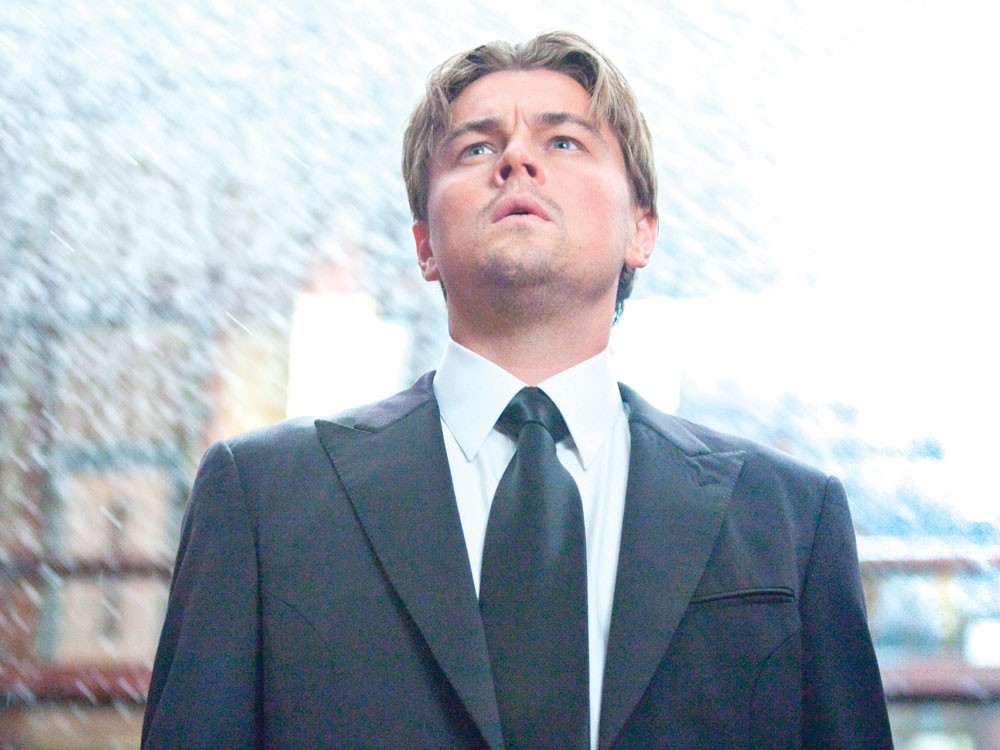It’s going to be interesting to watch people coming out of the theater after seeing Inception. Some will be pulling their chins thoughtfully while others will be scratching their heads confusedly. Everyone will be talking about it.
The newest film from Brit writer-director Christopher Nolan is kind of science fiction-thrillerromantic drama mix. It also blasts across the screen with the best visual razzle-dazzle of the year.
That said, it’s a little difficult to explain exactly what it’s about. But, inexplicably, that makes the film even more fun.
The core plotline presents us with a technology that allows people enter into the dreams of others in order to extract pieces of the dream. Plainly stated, these are thieves who steal ideas from others — a neat trick, especially if you put it in a corporate setting where certain ideas are worth a lot of money. But Inception asks us to look at the process differently. If we can steal ideas, why can’t we plant them? Why can’t we insert a negative thought into someone’s subconscious — something that might hurt the competition?
Nolan’s script offers up all sorts of psychobabble about our minds, our dreams, the uncontrollable subconscious. He has one of his characters explain that the concept of “dream sharing” was developed by the military so soldiers would know what war actually feels like. Then he ensnares us in his story of dreams and dreams within dreams. And with good guys and bad guys to spare, there’s action that reaches James Bondian proportions.
But there’s also a lot more.
Nolan already has two great character studies under his belt: Memento (2000) and Insomnia (2002). But before he tackled this new film, he wrote and directed a couple of effects-heavy, hefty moneymakers: Batman Begins and The Dark Knight. It’s as if he used all of those films as learning experiences that led directly toward Inception, which is a hybrid of action film and character study, as well as multi-leveled storytelling.
Posters and previews all put Leo DiCaprio front and center as the film’s star. He does play the central character, Cobb, the self-confessed “most skilled extractor” who’s about to try the practice of inception. And he’s, as just about always, terrific. But he’s surrounded here by a cast that lives and breathes terrific, including Joseph Gordon-Leavitt, Ellen Page,
Marion Cotillard, Cillian Murphy and Tom Hardy. (If you haven’t seen the latter’s Bronson, which is a tour de force, rent it today.) Nolan pulls great performances out of everyone, whether their characters are tortured, confused, calm or determined.
The intricacies of the story about Cobb’s “dream team” keep growing as we learn about architects who literally build dream worlds. Later, we experience familiar dream ingredients such as being weightless or having time thrown completely out of whack. There are many visual nods to the impossible images of M.C. Escher. Over on the aural side, there’s Hans Zimmer’s quietly throbbing, urgent score that can at any moment come to a thundering head.
This is a smart science fiction movie, one that will be most enjoyed by fans of multi-layered action films such as Blade Runner. It’s also challenging to take in all at once. Don’t be embarrassed if you’re not sure about what’s going on in the first few minutes. Just roll with it, and when it’s over and you’ve discussed it, think about how soon you’re going to see it again.
















